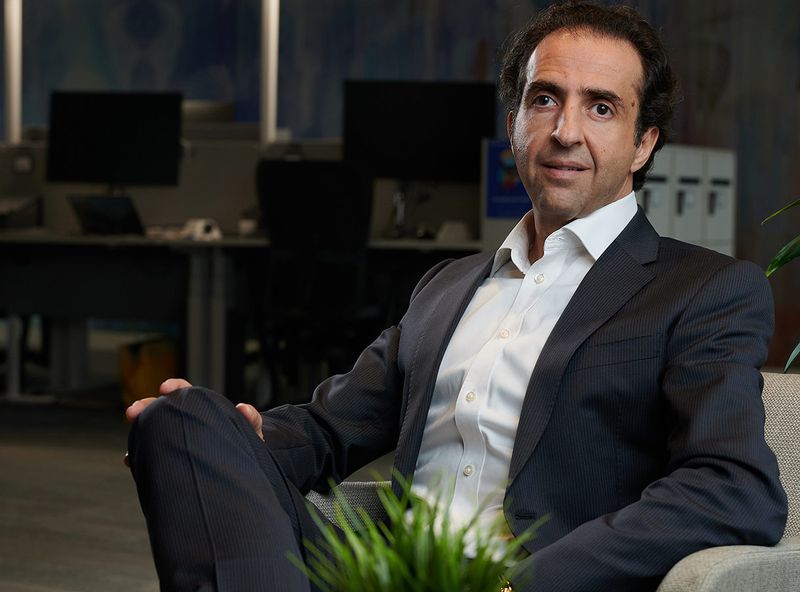
Dubai: This year, there was no cutting back on tech spending in the UAE and Gulf.
Even though businesses had reasons to be preoccupied with managing costs and counter the steady rise in interest rates and what that did to their operations. But even when dealing with that sort of cost pressure, managements by and large retained their capex levels on tech investments.
Now, with the heightened focus on being AI-ready and needing to focus on making available funds to do that, chances are that enterprises have little leeway to trim their tech costs.
Naim Yazbeck, General Manager of Microsoft UAE, talks of priorities – and more specifically what CEOs, CFOs and CTOs will be spending on.
Last year’s UAE and GCC tech space was about how quick enterprises can get onto the cloud. Has this been overtaken by AI?
Cloud and AI adoption typically develop hand in hand.
While it is possible to run AI services on (one’s) premises, it requires substantial computing power and internal expertise. AI is certainly capturing the imagination of most forward-looking organisations.
What started as an interest in utilizing the technology to automate tasks has evolved into businesses across all industries using AI to revolutionize how they analyze data and extract invaluable insights to create innovative ways of solving pressing issues and unleashing the full potential of their operations.
The governments of the UAE and the GCC very early on identified the potential of AI in accelerating progress towards their national goals for digital transformation and economic diversification. They have been investing heavily in AI research and development and launched a number of initiatives such as the UAE Strategy for Artificial Intelligence.
This is evident in this year’s theme at Gitex Global, which is ‘The Year to Imagine AI in Everything’.

Which should come first? Cloud integration or AI integration?
The decision between cloud integration and AI integration depends entirely on an organization’s specific needs and readiness. In most cases, cloud integration precedes AI integration since the cloud provides the scalable infrastructure required for AI.
The cloud also serves as the foundation for storing and processing the vast amounts of data that AI relies on. This is why the majority of businesses focus on cloud integration first, and it is only once their systems are in the cloud, that they begin to explore how AI can be used to improve their operations.
Some businesses may find more value in parallel integration efforts, adopting AI within cloud environments in order to improve efficiency, productivity, and decision-making. It is also important to note that there are a wide range of AI solutions available today, so businesses have to carefully consider their needs and objectives before selecting.
Businesses are still confused how best to bring in AI. Because they don’t get to buy off the shelf. What should be their strategy?
There is no one-size-fits-all approach when it comes to AI integration. Businesses should first have a clear understanding of their business goals and then identify the right AI solutions for their needs.
A good starting point is to simply ask what you are hoping to achieve with AI. Once a clear AI strategy and roadmap are in place, they can start building their in-house AI expertise or collaborate with AI service providers.
This is crucial because having the right team of people, who are knowledgeable about AI, can also help businesses troubleshoot any problems that may arise.
Secondly, it is important to start small with a few pilot projects and learn as you go. Don’t try to implement AI across your entire organization overnight; instead identify a specific problem that AI can solve for your business.
Lastly, explore the possibility of implementing pre-built AI solutions already available and helping to solve common business problems.
Do you see enough happening on the AI investment side to excite Microsoft Gulf to this are enterprise possibilities?
Absolutely, we are very excited about the AI investment landscape in the region. Guided by the government sector, businesses of all sizes and across all industries have embraced the transformative potential of AI and are accelerating their plans to adopt the technology to tackle key business challenges and drive sustainable economic growth.
In a world of increasing economic complexity, we believe that AI has the power to revolutionize many types of work. Microsoft is committed to making the promise of AI real — and doing it responsibly.
Our goal is to democratize our breakthroughs in AI through our Azure platform to help people and organizations around the world to be more productive and innovate solutions that solve the most pressing problems of our society.








